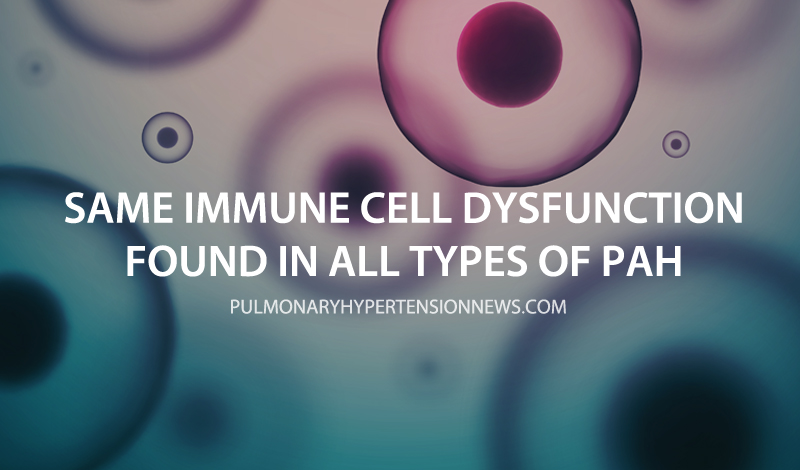Same Immune Cell Dysfunction Found in all Types of PAH
Written by |

Researchers found that key immune cells, called regulatory T lymphocytes (Treg), are dysfunctional in all forms of pulmonary arterial hypertension (PAH), but the nature of the alterations differ among subtypes of the disease. Specifically, Treg dysfunction is leptin-dependent in idiopathic PAH (iPAH) and connective tissue disease-associated PAH, and leptin-independent inheritable PAH.
Their study, “Regulatory T cell dysfunction in idiopathic, heritable and connective tissue-associated pulmonary arterial hypertension,” published in the journal Chest, helps to further understanding of the development and progression of the different forms of the disease.
PAH is a group of conditions with distinct causes, part of the larger “pulmonary hypertension” group of diseases. Immune system dysregulation is a known common factor of all types of PAH, contributing to disease susceptibility and progression. Research has shown that Tregs are dysfunctional in iPAH, a subgroup without a clear cause. Such dysfunction is also known to be leptin-dependent, meaning the overproduction of the hormone leptin participates in the pathways which lead to the immune cell dysfunction and vascular remodeling. It is not known, however, if these pathological abnormalities are common to other types of PAH or specific to iPAH.
Read more about it: https://bit.ly/1UvTBJA



